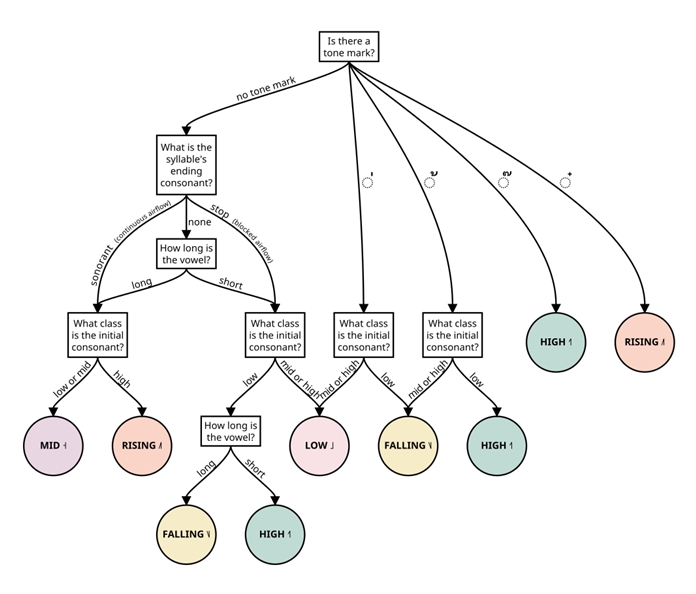
So you “say” you want to speak Thai. Are you just saying that, or do you really want to become fluent? After nearly a lifetime spent in the Kingdom, our own Jay Patterson, who is not only fluent in Thai but in the many various dialects of the language as well, humorously addresses some of the “poor” excuses many foreigners use for their pitfalls in attempting to speak in the vernacular. The bottom line? There’s no substitute for hard work.
I’m tired of foreigners asking me, ‘How did you ever learn Thai?’ (Foreigners who ask this question often don’t speak their own language very well.)
What can I answer? ‘I was born in this area,’ doesn’t seem to suffice.
They usually continue, ‘Oh, I understand that, but how did you ever learn to read and write it?’
I’ve a killer reply for that one. ‘Hard work.’
This usually shuts people up, but the interlocutor often looks at me as if I’ve given them a very flippant answer.
Isn’t a bit of ability and a lot of hard work the way to learn anything? (I believe Edison made a comment on that.)
Most people have a bit of ability. It’s the ‘hard work’ part that usually snags them.
One of my friends had little ability for foreign languages, but was intelligent and worked like mad. He went to a good Thai language school, listened to the teachers, did all his homework and worked day and night on his Thai. He was speaking decent Thai in 3 months.
He asked me, ‘Do you get the question, “How did you ever learn to speak Thai?’”
‘All the time,’ I told him.
‘Hmm!’
Another way people assuage their guilt is the old chestnut, ‘I’m tone deaf.’
What is my answer for that? ‘Ha!’
A Thai speech pathologist friend and I were talking. He told me about the speech problems Thai children may have.
‘Some speak nasally, some lisp or have problems with R and L’
This sounded reasonable. ‘How about tones?’ I asked.
‘Nope. That isn’t a part of Thai speech pathology. Thai children and adults never have problems producing correct tones.’
‘But some people can’t carry a tune,’ I responded.
‘Singing tunes and producing speech contours are different.’
‘But foreigners always complain about being tone deaf and not being able to produce Thai tones.’
My friend looked at me. ‘Of course there are musically tone deaf people among Thais and westerners. But a westerner, even if tone deaf, produces every tone that exists in Thai language when speaking his or her native language. The problem is not producing tones, but fixing the tone to one word.’
So don’t complain that you’re tone-deaf.
Another great argument; ‘Oh, it doesn’t matter if my tones are wrong. They’ll get it from context.’
This argument is sometimes true, but has many glaring holes in it.
Imagine you are speaking to a Thai taxi driver. He or she asks you if your destination is ‘near’ or ‘far.’
The word for ‘near’ is klai, with a falling tone. The word for ‘far’ is klai, with a flat tone. You’re talking about distance, and the only difference is the tone. How can one expect a taxi driver to get that from ‘context? ’
Most people tend to make noises that tones should not be such a ‘big issue.’ But in the above case, the tone is the whole issue.
This is not to say that other nationalities are not linguistically ethnocentric. I was having a conversation with a Thai taxi driver. He asked me if I could speak phaasaa Farang. (Technically this means ‘European language’, but to Thais, phaasaa Farang means English, as all Europeans speak English. Don’t they?)
When I told him I could, he said, ‘But isn’t Thai so much easier? We don’t make all those strange hissing sounds. We just speak normally.’
Thais find the spitting labials and dentals of English unpronounceable, and a bit uncivilised.
The Thai language does not have released word endings, so the following words sound exactly alike to non-English speaking Thais.
Rice, right, rights, lice, lye, lime, rhyme, Reich, light, rye.
‘How silly!’ thinks the westerner. ‘They’re totally different.’
They sure are. So are Thai tones.
Just think how much easier Thai is than English. Thai only has 5 tones in the central area, six in the northern and most Isan dialects, and seven in the dialects of Roi-Et and the southern provinces.
English has at least 42 different ‘tones’ or ‘pitch contours’.
The difference is our tones express feeling and Thai tones express meaning.
‘But I just can’t get the concept; there’s nothing like it in English!’ is another excuse.
Wrong.
Think of the word ‘entrance’ which means ‘a place to enter’ and ‘entrance’, which means to put someone ‘under a spell’. ‘Content’ which means ‘that which is contained’ and ‘content’ which means ‘tranquilly happy’. The only difference between them is the pitch contour. If someone pronounces them incorrectly, you are confused.
Does that help?
Last ditch excuses; ‘I just don’t have the time.’ ‘I have a PILC meeting.’ ‘I have to go to Rotary.’ These are usually trotted out after all other excuses are exhausted.
The worst excuse of all; ‘Well, I think it’s really more important for Thai people to learn English, as it is an ‘international’ language. I’m accomplishing much more by speaking English to them.’
Sure.
This is sinking pretty low. Why do most Thai people with basic English skills say ‘Yesterday, I go’? Because foreigners assume they have no intellect and don’t help them with a friendly correction.
The usual response; ‘Yeah, but it’s easier. Who wants to spend all the time teaching English?’ This excuse usually comes from those people who think ‘Thais should learn English.’
It’s so wonderful hearing a Thai say, ‘YOU! WHERE YOU GO!’ They think they are being polite. None of the people who think ‘Thais should learn English’ has ever corrected them. The foreigner purposely speaks his or her own language incorrectly, ‘helping’ no-one to learn anything.
I am not criticising people for not learning Thai. I’m just tired of hearing people saying, ‘Gee, I’d love to be able to speak Thai really well.’
If you really did, you would.
The most valid reason for not learning Thai came from a good friend.
‘No, I don’t want to learn Thai. I’m too @#% lazy to do it.’
That was the most valid reason I’ve heard yet. Very refreshing.
 |
 |
 |





